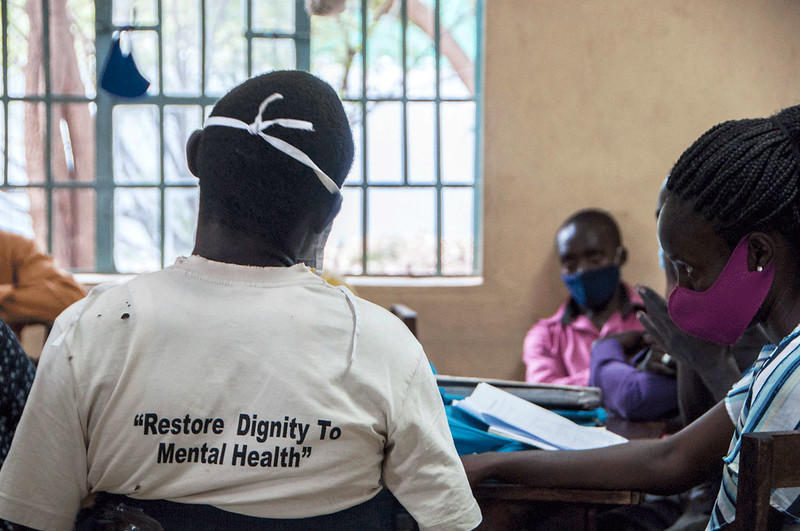Mental health and psychosocial support

JRS’s priority for 2025–2029 is to improve the mental health and psychosocial wellbeing of forcibly displaced people by prioritising community based and community led initiatives.
Displacement often follows significant hardship, including experiences of violence, loss, and insecurity. These challenges, combined with daily stressors of life away from home, can have a serious impact on mental health. In these situations, it is normal to experience distress, but many people recover when their basic needs are met, and their social connections rebuilt. Others require additional support to heal and adapt to the new realities, communities, and way of life.
JRS’s Approach to MHPSS
JRS offers holistic and compassionate Mental Health and Psychosocial Support (MHPSS) services grounded in the Jesuit tradition of cura personalis – care for the whole person – and aligned with humanitarian standards. We accompany individuals and communities with humility and respect for their dignity, culture, and faith. Our approach is participatory, recognising the strengths and capacities of communities, and supporting all members to play an active role in their own recovery and wellbeing.
JRS’s MHPSS SERVICES
JRS delivers a wide range of Mental Health and Psychosocial Support services, including:
- Community activities that strengthen connection and social cohesion, such as sports, arts, music, and cultural initiatives.
- Social and emotional learning in schools and community centres to reduce stress and build safety.
- Support for parents, teachers, and caregivers to provide nurturing environments for children and young people.
- Psychological first aid, counselling, and safe spaces for individuals and groups, including survivors of violence.
- Referrals to specialist mental health services when more advanced care is needed.
MHPSS is also woven into education, livelihoods, child protection and other JRS’s programmes to ensure the best possible care for the people we serve.
At JRS, we believe recovery is possible when people are given the tools and support they need. By investing in community-led initiatives, forcibly displaced people can heal and nurture hope for the future.
Programme Stories
How communities safeguard mental health in South Sudan
10 October 2025

Taking care of staff’s mental health in humanitarian settings
10 October 2024

Two Yazidi women are making their way to recovery
03 August 2024

In the Democratic Republic of the Congo, displaced people find hope through psychosocial support
20 May 2024

Providing access to psychosocial support for forcibly displaced persons: Q&A with Moses Mukasa
10 October 2023

In Lebanon, Art Education Helps Refugees Express Themselves
30 January 2023






